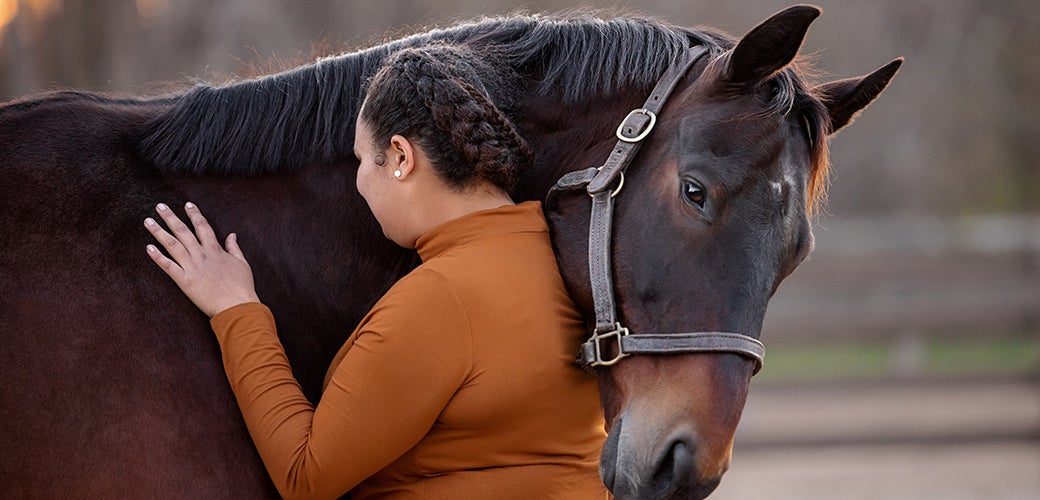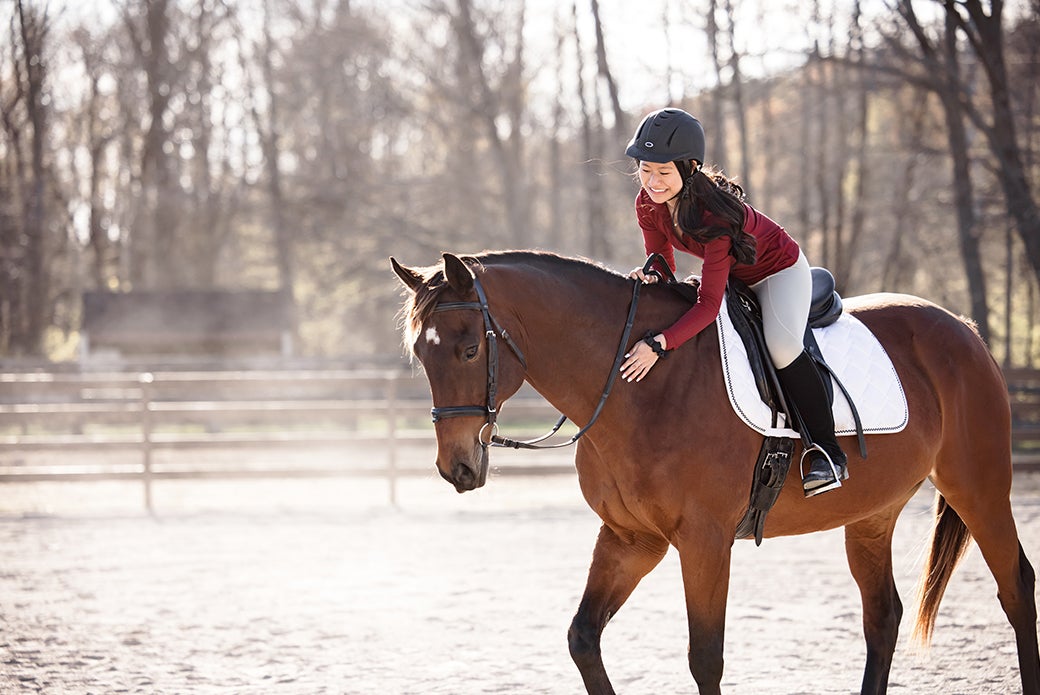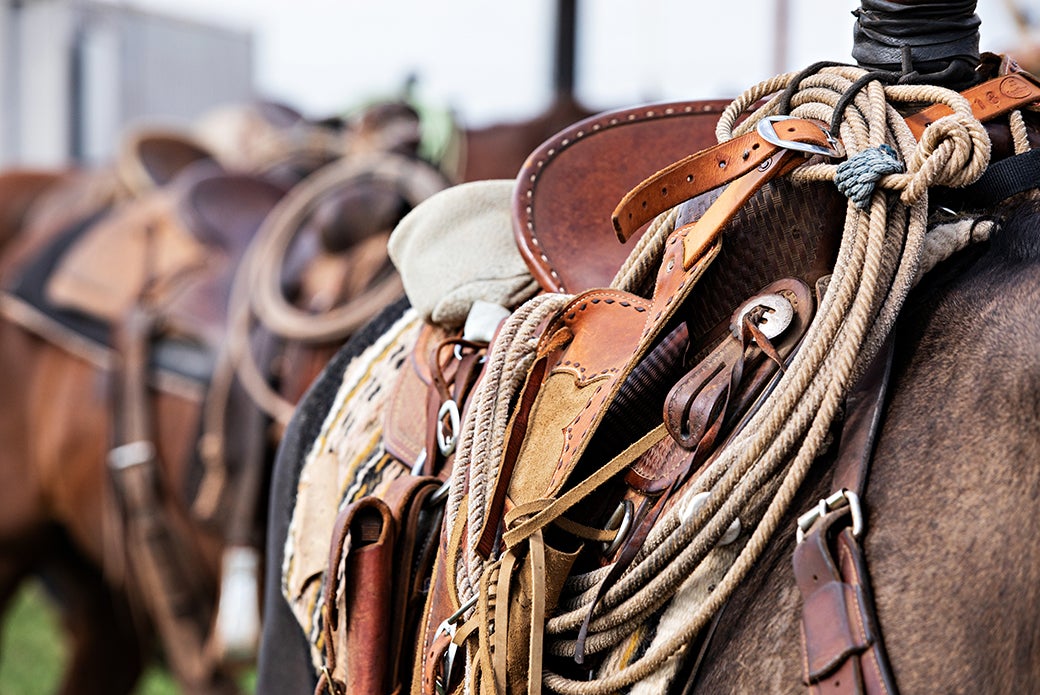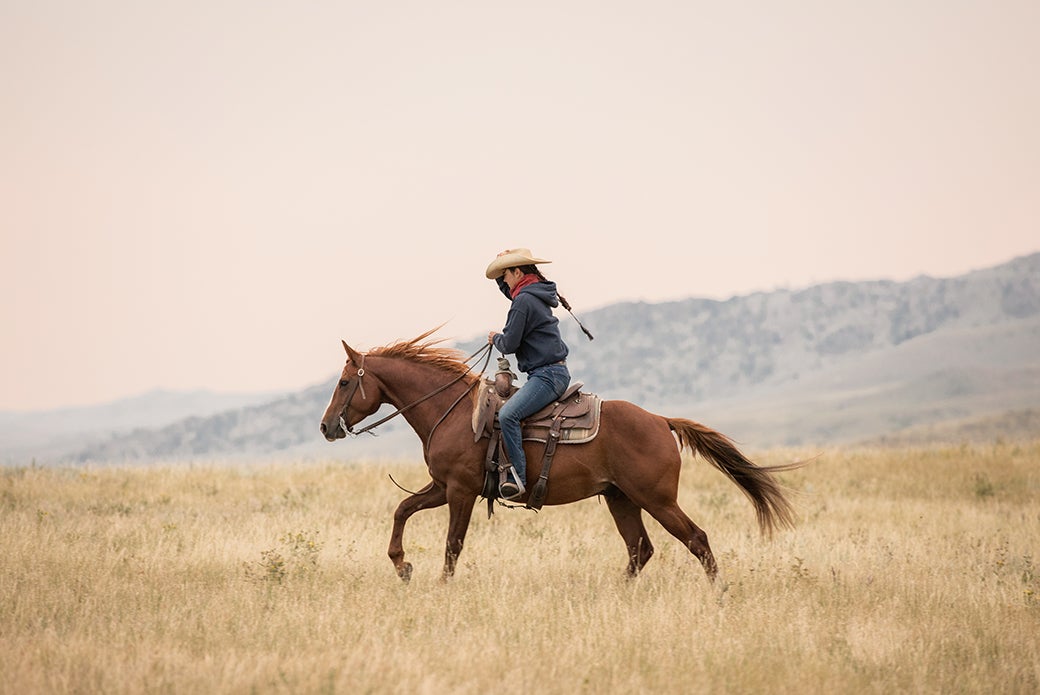

If you’ve been thinking about trying your hoof at horseback riding and have dreamed of getting more involved with horses, know that there are many exciting riding styles and equine sports to discover. And, there are horses looking for homes right now who already have various levels of training.
Learn about the two major styles of riding as you explore equine adoption and the amazing things you can do with your horse!
English
English riding is a broad term used to describe many different sub-disciplines and riding styles. They are all rooted in cavalry work, and the saddles, tack and many of the riding techniques stem from centuries-old systems for training horses. One easy way to identify English riding is by looking at the saddles, which are smaller, flatter and lighter than their Western counterparts, lacking the distinctive saddle horn. English saddle design varies slightly between disciplines, but they are all designed to give both the horse and rider freedom of movement for high speeds and jumping.


A few of the more common English disciplines include the three Olympic equestrian disciplines of show jumping, dressage and eventing.


The English disciplines are more popular globally, however, Western disciplines have taken the equestrian world by storm over the last century and are rapidly gaining popularity.
Western
The evolution of Western riding disciplines is very different from English disciplines. The techniques and tack used in Western riding styles center around working cattle, and the style of riding was developed primarily in the Americas. A newer style of riding, Western disciplines most often originate from the art of training horses for ranch work and safely moving cattle.


Western saddles typically have a “horn” on the front of the saddle (the knob that sits in front of the rider) and a deeper seat. This allows the rider to stay centered during the sharp turns a horse makes while tracking cattle. Additionally, the horn is also used for rider stabilization and to anchor a rope if being used contain an animal for care or medical treatment.


Today, you’ll see many different equestrian sports that have evolved from their ranching roots. The sport of reining shows off a high level of training with exciting stops, spins and changes of speed, simulating the activities on the ranch. Similarly, barrel racing and many speed events showcase the horse’s ability to move quickly to follow cattle and cover ground.
Unmounted
Don’t forget–there are many ways to enjoy horses without ever swinging a leg into any style of saddle! Beyond the benefits of equine companionship, there are many competition opportunities and communities centered around the unmounted relationship between horse and handler. Equine agility and liberty work is continually gaining popularity and is a great way to get involved in equestrian competition from the ground.
If you’re ready to learn more about equine adoption and support at-risk horses, visit My Right Horse. There, you can browse hundreds of adoptable horses, learn more about the adoption process and easily share your favorite horses on social media to help connect the right horse to the right person.
Source: Read Full Article



